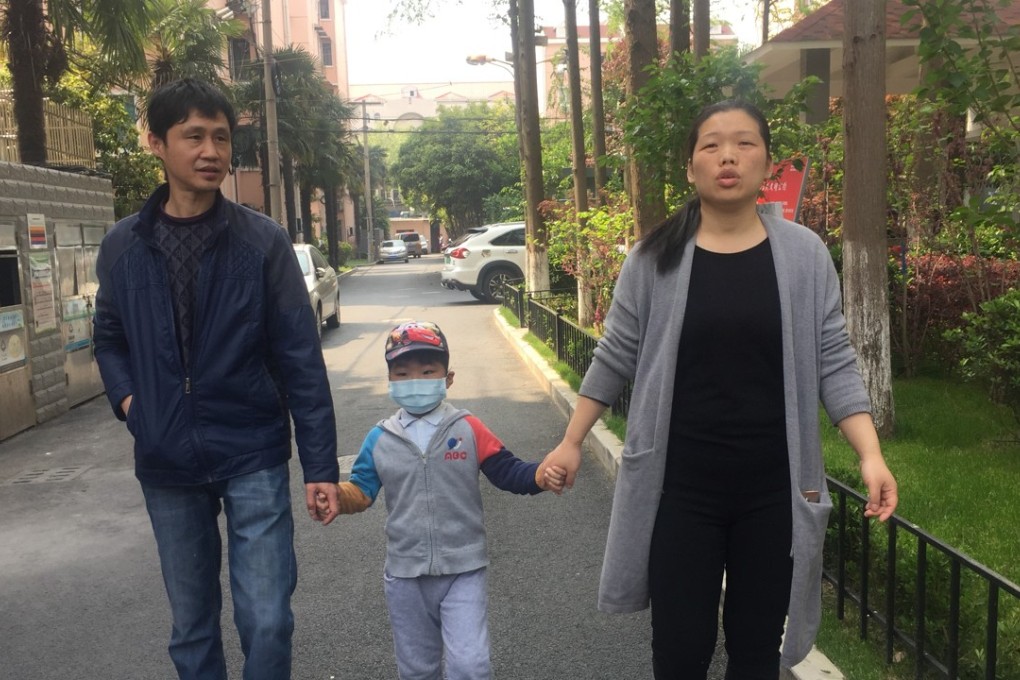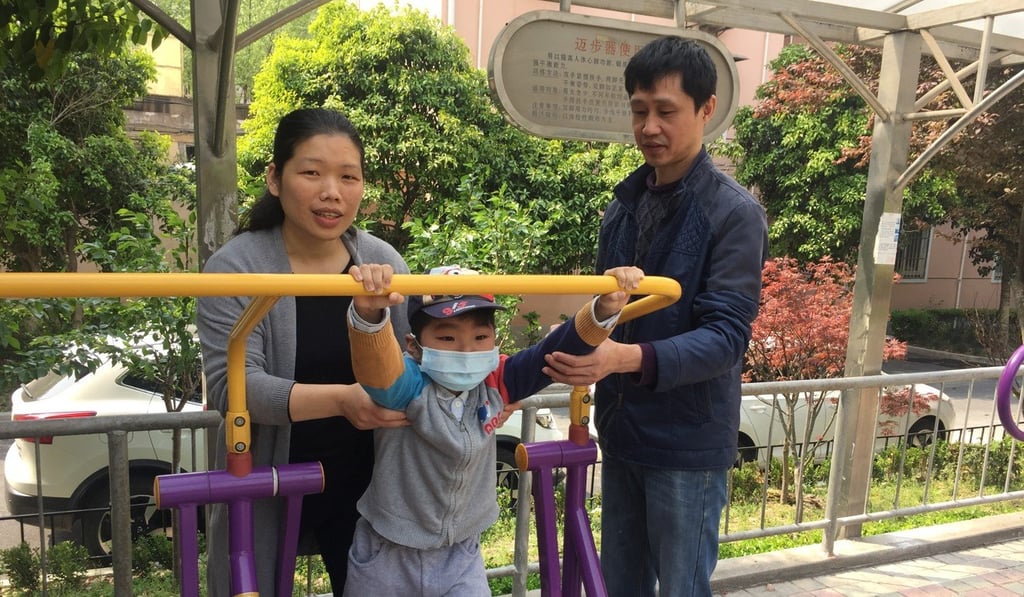‘Saving a life at any cost’: the Chinese parents flocking to big cities for a cure for their sick children
Fan Xiujuan and her husband have left home and given up more than everything they have in search of the best medical care for their son

On a sunny spring day, five-year-old Gu Zisen holds his parents’ hands as they walk around a Shanghai neighbourhood.
Decked out in a cap and mask, Zisen sings as he examines grass and flower blossoms in a playground.
It’s a brief walk but his parents are relieved he is so cheerful – for much of his short life the boy has been in a life-and-death battle with aplastic anaemia, a rare bone marrow and stem cell disease.
Zisen and his parents were living 1,100km away in Ganzhou, Jiangxi province, in June, 2016 when they were given the diagnosis but the family moved to Shanghai in search of the best medical care.
They rent a small room near the Shanghai Children’s Medical Centre and spend their days shuttling to and from the medical facility.

The move has drained the couple’s finances and energy but they are convinced that they have a better chance of saving their son in Shanghai than back in their hometown.